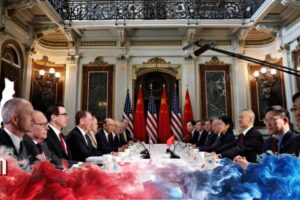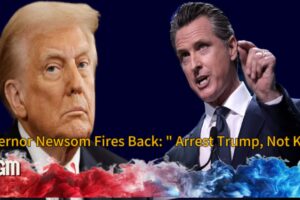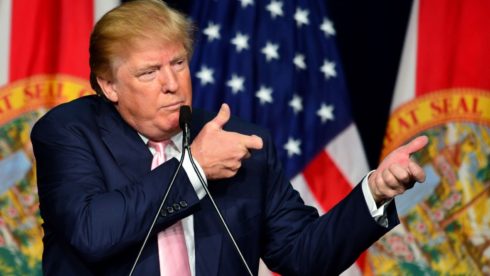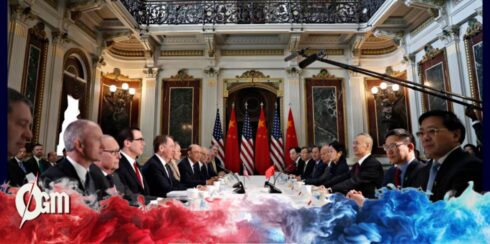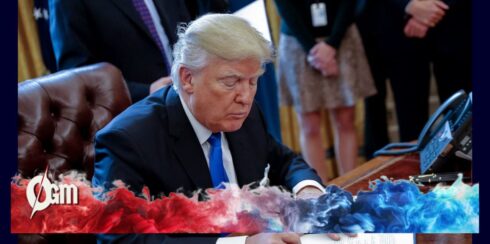Donald Trump has vowed to address immigration by initiating the largest mass deportations of undocumented migrants in U.S. history. In his campaign, he pledged to complete the border wall with Mexico, a project he began during his first term. His stance comes in response to record-high border crossings reported during the Biden administration, which have since decreased in 2024. Trump’s goal is to curb unauthorized entry and reinforce border security to maintain American sovereignty and protect resources.
Experts, however, have raised concerns about the feasibility of this large-scale deportation plan. The logistical and legal challenges, coupled with potential economic ramifications, could hinder the proposal’s execution. Studies indicate that a drastic reduction in migrant labor could negatively impact key sectors like agriculture, potentially slowing economic growth. Critics argue that Trump’s immigration approach, while tough on illegal crossings, lacks the necessary framework to balance enforcement with economic stability.
Economic Overhaul: Tax Cuts, Tariffs, and Inflation Control
Economic reform remains a cornerstone of Trump’s platform, with a bold promise to “end inflation” and a pledge to implement sweeping tax cuts. Building on his 2017 tax overhaul, Trump has proposed making tips tax-free, abolishing taxes on Social Security payments, and reducing corporate tax rates. Additionally, he envisions imposing a 10% tariff on foreign goods, with a steep 60% tariff on imports from China, in hopes of reducing the trade deficit and protecting American industries.
While Trump’s promises have sparked enthusiasm among supporters, economists caution that a heavy reliance on tariffs could have inflationary consequences for consumers. Tariffs on essential goods could increase retail prices, diminishing purchasing power. Although Trump’s administration might have limited direct influence on inflation, his tax-cut initiatives could spur consumer spending, which may, in turn, contribute to growth—though possibly at the cost of escalating the national debt.
Environmental Rollbacks: Reducing Climate Regulations and Boosting Fossil Fuels
True to his first term’s approach, Trump has vowed to deregulate the environmental sector, arguing that strict policies stymie economic growth. He plans to roll back environmental protections to aid the American auto industry and has repeatedly criticized electric vehicle incentives championed by the Biden administration. In addition, Trump has promised to enhance fossil fuel production by drilling on day one, especially in protected areas like the Arctic wilderness, to drive down energy costs.
Environmental experts, however, caution that deregulation could have long-term environmental and public health consequences. Opening protected areas for drilling might provide a temporary boost to energy supply, but it risks damaging fragile ecosystems and increasing greenhouse gas emissions. Despite Trump’s push for “energy independence,” analysts argue that his agenda largely disregards renewable energy, which many experts believe is critical for sustainable economic and environmental health.
Foreign Policy Shifts: Trump Promises Ending the Ukraine Conflict and Revisiting U.S. Alliances
One of Trump’s most ambitious promises is to end the Ukraine war “within 24 hours” through diplomacy. His stance reflects a broader intention to reduce U.S. involvement in foreign conflicts, a perspective that has garnered mixed reactions. Trump has called for a reevaluation of U.S. spending in Ukraine, suggesting that American funds would be better allocated domestically. Additionally, regarding the Gaza conflict, Trump supports Israel but has advocated for an end to its military operations in the region.
Critics argue that Trump’s approach could empower adversaries, particularly Russian President Vladimir Putin. While Trump has expressed confidence in achieving peace swiftly, he has not specified what concessions might be required, leading some to question the effectiveness and ethical implications of his plan. By shifting away from international involvement, Trump’s approach contrasts sharply with traditional bipartisan support for allies in conflict zones, underscoring his commitment to an America-first foreign policy.
Domestic Policy Decisions: Abortion Rights, Jan 6 Pardons, and Firing Special Counsel
Domestically, Trump has taken a clear stance on several contentious issues, including reproductive rights, January 6 riot pardons, and the dismissal of Special Counsel Jack Smith. Trump has resisted calls for a federal abortion ban, instead asserting that states should determine their own laws on the matter. He also intends to pardon certain individuals convicted in relation to the January 6 Capitol riots, whom he considers “wrongfully imprisoned” political prisoners.
A significant part of Donald’s agenda involves his legal battles, as he has vowed to dismiss Jack Smith, the special counsel prosecuting cases against him for his handling of classified documents and alleged election interference. This promise signals Donald’s intention to frame these legal actions as politically motivated, positioning himself as a defender against what he terms a “witch hunt.” Critics argue this could set a dangerous precedent, but Donald’s stance has resonated with supporters who view the charges as unjustified and driven by partisan motives.

